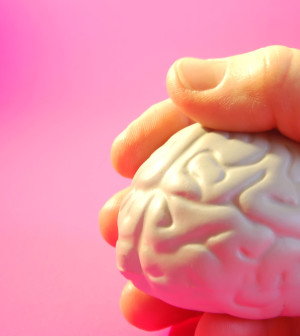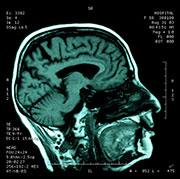- Could Artificial Sweeteners Be Aging the Brain Faster?
- Techniques for Soothing Your Nervous System
- Does the Water in Your House Smell Funny? Here’s Why
- Can a Daily Dose of Apple Cider Vinegar Actually Aid Weight Loss?
- 6 Health Beverages That Can Actually Spike Your Blood Sugar
- Treatment Options for Social Anxiety Disorder
- Understanding the Connection Between Anxiety and Depression
- How Daily Prunes Can Influence Cholesterol and Inflammation
- When to Take B12 for Better Absorption and Energy
- Epsom Salts: Health Benefits and Uses
Stroke Ages Brain by 8 Years, Study Finds


A stroke robs the brain of nearly eight years, impairing memory and slowing thinking speed, a new study says.
University of Michigan researchers analyzed national data from more than 4,900 black and white Americans aged 65 and older who underwent tests of memory and thinking speed between 1998 and 2012.
Test results among those who suffered a stroke fell as much as if they had suddenly aged 7.9 years, according to the study in the July issue of the journal Stroke.
Stroke had a similar effect on brain function in both blacks and whites in the study. But previous research has found that rates of memory and thinking problems in older blacks are generally twice that of whites.
These new findings show that stroke doesn’t account for that racial disparity as people age, and also highlight the importance of stroke prevention, the researchers said.
“As we search for the key drivers of the known disparities in cognitive [mental] decline between blacks and whites, we focus here on the role of ‘health shocks’ such as stroke,” study author Dr. Deborah Levine, an assistant professor in the University of Michigan medical school, said in a university news release.
“Although we found that stroke does not explain the difference, these results show the amount of cognitive aging that stroke brings on, and therefore the importance of stroke prevention to reduce the risk of cognitive decline,” she added.
Ways to reduce stroke risk include: controlling blood pressure and cholesterol; not smoking; physical activity; and controlling blood sugar in diabetes.
More information
The U.S. National Institute of Neurological Disorders and Stroke has more about stroke prevention.
Source: HealthDay
Copyright © 2026 HealthDay. All rights reserved.










